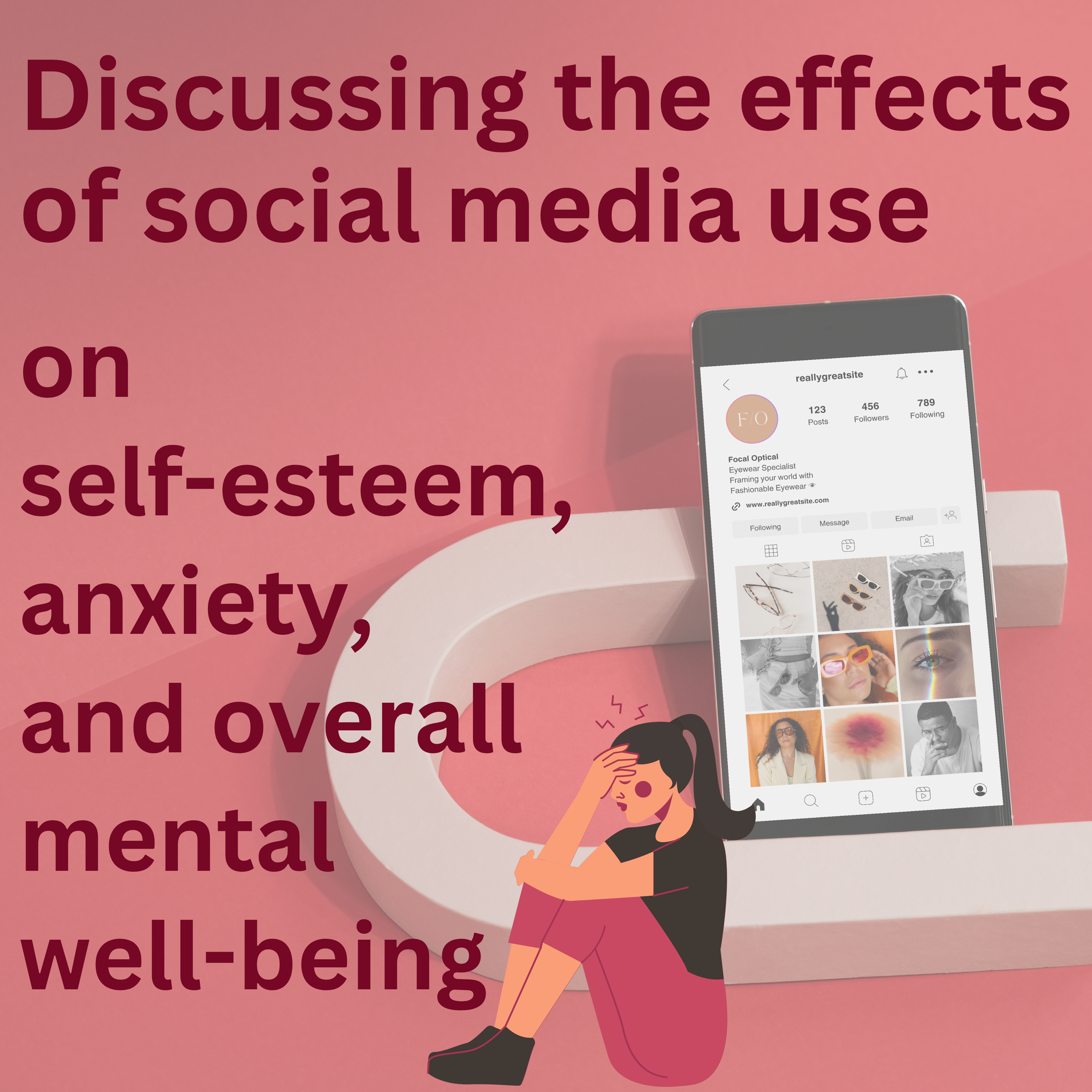Discussing the effects of social media use on self-esteem, anxiety, and overall mental well-being
Social media is everywhere today. It’s how we connect with friends, follow our favorite celebrities, watch funny videos, and even get the news. But have you ever stopped to think about how it really affects our mental health? Many studies and real-life experiences show that while social media has its benefits, it also has a strong impact on our self-esteem, anxiety levels, and overall mental well-being.
Using social media late at night can mess with our sleep. Scrolling before bed may seem harmless, but it keeps our minds active and can make it harder to relax and fall asleep. And when we don’t sleep well, our mood and focus suffer too, adding to the stress and anxiety...!
Let’s start with self-esteem. When we scroll through Instagram, TikTok, or Facebook, we often see people sharing their best moments—perfect vacations, glowing selfies, exciting news. It’s easy to forget that these posts are just a small, edited part of someone’s life. But still, we compare. We start thinking, “Why doesn’t my life look like that?” or “Why don’t I look that good?” This constant comparison can make us feel less confident about ourselves, even if we’re doing just fine. Over time, it chips away at our self-worth, especially for teenagers and young adults who are still figuring out who they are.
Then there’s anxiety. The need to stay updated, respond quickly, or get likes and comments can become really stressful. Some people even feel nervous if they don’t get a reply fast enough or if their post doesn’t get enough engagement. And the fear of missing out—FOMO—makes it worse. Seeing others always doing something fun can make us feel left out, even if we were feeling fine just moments ago. This constant pressure can raise anxiety levels and leave us feeling restless or mentally drained.
On top of that, using social media late at night can mess with our sleep. Scrolling before bed may seem harmless, but it keeps our minds active and can make it harder to relax and fall asleep. And when we don’t sleep well, our mood and focus suffer too, adding to the stress and anxiety.

But here’s the good news—social media isn’t all bad. It can also be a great space for learning, expressing yourself, and finding supportive communities. The key is balance. Setting screen time limits, unfollowing accounts that make you feel bad, and spending more time offline can make a big difference. Instead of comparing yourself to what you see online, try to focus on your real-life experiences and personal growth. You are so much more than your profile, your pictures, or your likes.
Being mindful of how social media makes you feel is the first step to protecting your mental well-being. Use it in a way that lifts you up, not drags you down. Because at the end of the day, your mental health matters more than any trend, filter, or follower count.





